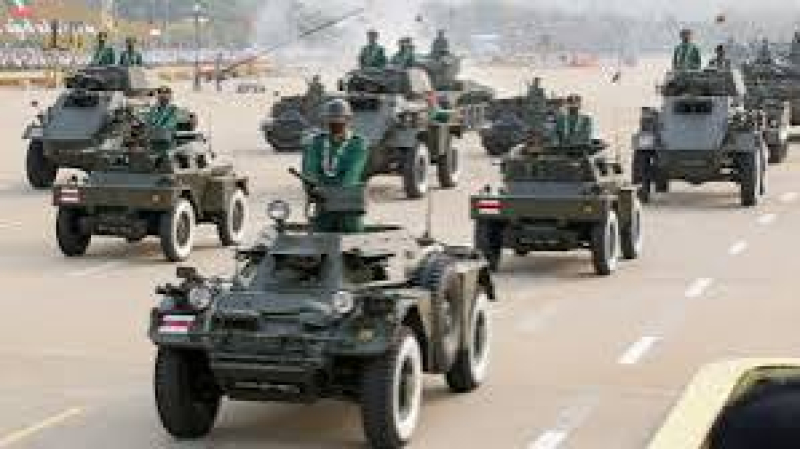- BSF halts fencing at Joypurhat border after BGB intervention |
- 30 NCP leaders urge Nahid Islam not to form alliance with Jamaat |
- Tarique offers fateha at graves of Pilkhana martyrs, father-in-law |
- Navy detains 11 over smuggling diesel, cement to Myanmar |
- Investors stay away as stocks turnover drops 7% despite index gains |
Fight back or flee? Myanmar draft forces hard choices on youth

Weeks after Myanmar's military government announced a nationwide draft, two young women from far-flung parts of the Southeast Asian country headed to the jungles to take up arms against the junta.
For two men in their 30s in Myanmar's two largest cities, the threat of conscription after the February call-up prompted them to upend their lives and flee to neighboring Thailand.
The choices by these four young people to rebel or flee offer a glimpse into the turmoil in Myanmar as a growing military resistance poses the biggest challenge to the junta since it seized power in a 2021 coup, reports VOA.
Enforcing a 2010 law, the junta said in February all men aged 18 to 35 and women 18 to 27 must serve for up to two years, while specialists like doctors aged up to 45 must serve for three years.
That means 14 million people, 27% of Myanmar's population, are subject to conscription, the junta says, calling on around 60,000 a year to enlist. Estimates of the current size of the armed forces, rebel groups or numbers of people trying to avoid conscription could not be ascertained.
The government is responding to a rebel offensive launched in October that has become the most significant threat to the regime since the coup that toppled Nobel laureate Aung San Suu Kyi's civilian-led government.
'I have made my choice'
"After the conscription law was enacted, all young people had to make a decision," said one of the women, an 18-year-old computer science student who left Myanmar's Mon state without telling her mother, to join the armed wing of the Karen National Union rebel group.
"I don't fear battles," she said, "I have made my choice."
In Bangkok, one of the men who fled, a 32-year-old who moved from Mandalay, said, "I was still at my job and with my family the other day. And suddenly now I am here."
All four requested anonymity, citing safety concerns as the first recruits enter training and local authorities issue notices to eligible people.
Pro-government social media channels show young men entering military training halls, sometimes flanked by junta supporters holding flowers.
But months of relentless fighting has depleted most military battalions to half their recommended troop strength, driving the junta to enforce the conscription law.
This disruption "is having serious negative consequences for the economy," said Richard Horsey, the Crisis Group's senior Myanmar adviser. But, he said, "I'm not sure it will affect the regime's conscription plans, given the relatively small number of conscripts they are aiming for."
'No future for the youth'
Successive crises since the 1960s have led to waves of exodus, especially of the educated, said Myanmar expert Tun Myint, a political science professor at Carleton College in Minnesota.
"The people who are or about to become doctors, professors, engineers and so on are now abandoning the country," he said. "There's no future for the youth."
For years, a 21-year-old woman from central Myanmar's Bago region dreamt of attending language classes and becoming a tour guide. The double whammy of the coup and the COVID-19 pandemic forced her to work as a saleswoman.
Then some weeks ago she joined the Bamar People's Liberation Army, founded by a poet turned militia leader.
"When the law was announced, my mother told me to join the revolutionary forces instead of being taken by the junta military," she told Reuters from a training camp.
The man from Mandalay, who trained as an engineer and sold household goods to raise $2,000 to move to the Thai capital, is forlorn.
"We don't have goals for our future or careers anymore," he said. "We are just figuring out how to survive every day."

